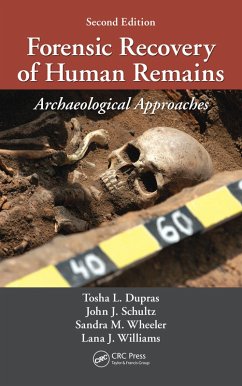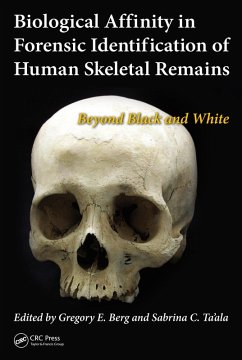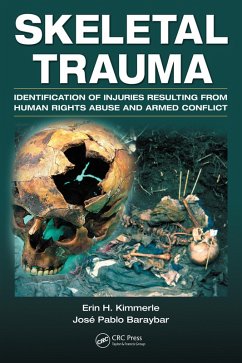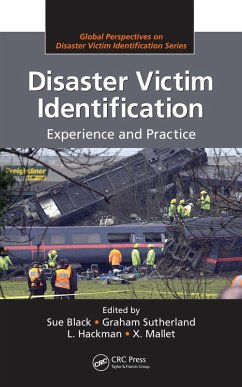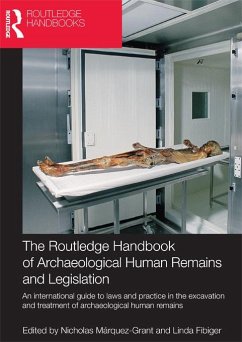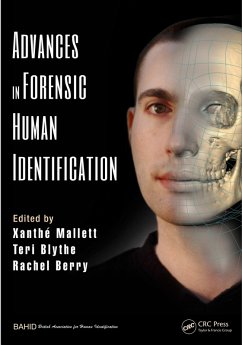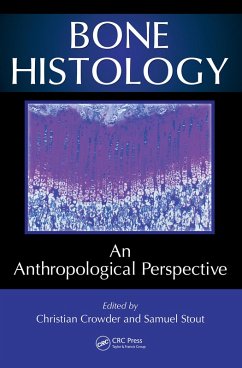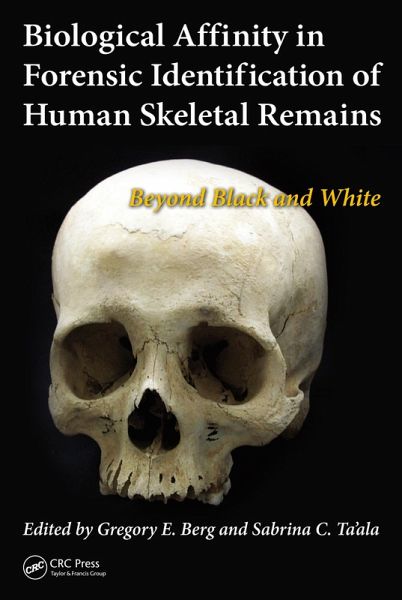
Biological Affinity in Forensic Identification of Human Skeletal Remains (eBook, PDF)
Beyond Black and White
Redaktion: Berg, Gregory E.; Ta'ala, Sabrina C
Versandkostenfrei!
Sofort per Download lieferbar
73,95 €
inkl. MwSt.
Weitere Ausgaben:

PAYBACK Punkte
37 °P sammeln!
Ancestry determination in the identification of unknown remains can be a challenge for forensic scientists and anthropologists, especially when the remains available for testing are limited. There are various techniques for the assessment of ancestry, ranging from traditional to new microbiological and computer-assisted methods. Biological Affinity in Forensic Identification of Human Skeletal Remains: Beyond Black and White presents a range of tools that can be used to identify the probable socio-cultural race category of unknown human remains.Gathering insight from those who have made recent ...
Ancestry determination in the identification of unknown remains can be a challenge for forensic scientists and anthropologists, especially when the remains available for testing are limited. There are various techniques for the assessment of ancestry, ranging from traditional to new microbiological and computer-assisted methods. Biological Affinity in Forensic Identification of Human Skeletal Remains: Beyond Black and White presents a range of tools that can be used to identify the probable socio-cultural race category of unknown human remains.
Gathering insight from those who have made recent improvements and scientific advances in the field, the book begins with the historical foundations of the concept of biological affinity and the need for increased research into methods for determining ancestry of skeletal remains. The contributors cover a range of topics, including:
No single method or technique is adequate in the assessment of ancestry. For accurate determinations, the use of traditional and new techniques combined yields better results. This book demonstrates the large repertoire of tools available to those tasked with these challenging determinations.
Gathering insight from those who have made recent improvements and scientific advances in the field, the book begins with the historical foundations of the concept of biological affinity and the need for increased research into methods for determining ancestry of skeletal remains. The contributors cover a range of topics, including:
- Ancestry estimation from the skull using morphoscopic and morphometric traits and variables
- Innovative methods from metric analyses of the postcrania, and new approaches to dental non-metric variation
- The biological diversity of Hispanic populations and use of discriminant function analysis and 3D-ID software to determine ancestry
- Methods of age progression and facial reconstructions to create two-dimensional (2D) and three-dimensional (3D) facial composites for missing people
- The preparation of skeletal remains for DNA extraction and sampling, and mtDNA methods that are available for identification of haplogroups (e.g., ancestral populations)
No single method or technique is adequate in the assessment of ancestry. For accurate determinations, the use of traditional and new techniques combined yields better results. This book demonstrates the large repertoire of tools available to those tasked with these challenging determinations.
Dieser Download kann aus rechtlichen Gründen nur mit Rechnungsadresse in A, B, BG, CY, CZ, D, DK, EW, E, FIN, F, GR, HR, H, IRL, I, LT, L, LR, M, NL, PL, P, R, S, SLO, SK ausgeliefert werden.




